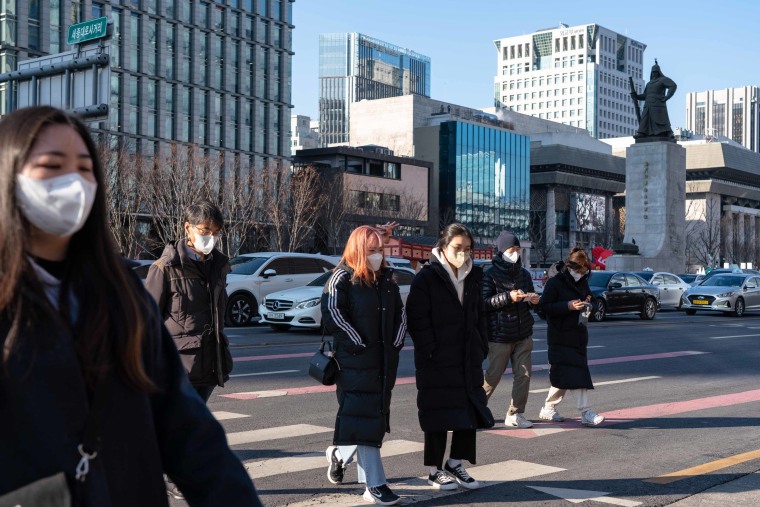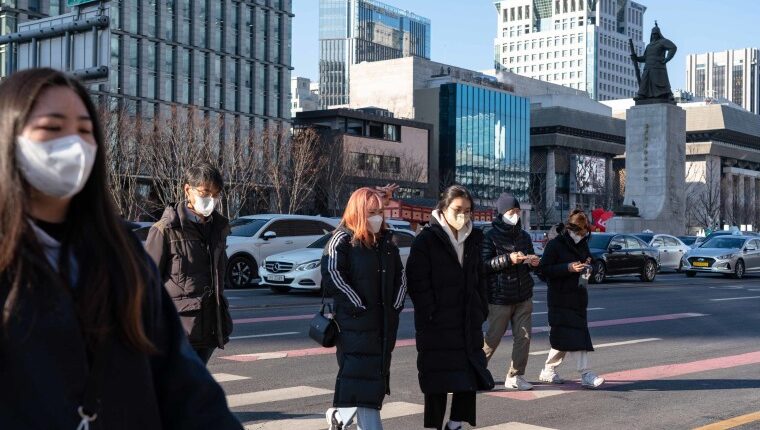Yet concerns about overworking are particularly acute in South Korea, a country with a notorious workaholic culture of long hours and intense educational expectations that aided its rapid economic growth in the years since the Korean War.
On average, South Koreans work 1,915 hours per year, the fifth highest among nations in the Organization for Economic Cooperation and Development. By comparison, Americans work an average of 1,791 hours annually, while the average is 1,490 hours in France and 1,349 hours in Germany, according to OECD data.
South Korean workers described a culture in which overtime is ubiquitous, workers are expected to attend mandatory after-work team dinners and drinking sessions, and employees feel compelled to stay at the office until they see the boss leave, regardless of whether they’ve finished their tasks.
Workaholism here has also driven concerns over public health — South Korea has the highest suicide rate among developed countries in the OECD — and its role in the country’s demographic crisis. South Korea has the world’s lowest fertility rate, at 0.78, meaning there are more deaths than births.
“Fewer and fewer women want to have babies, because they realize that having a baby means that it’s the end of your career, effectively,” said Cho Hee-kyung, a professor at the Hongik University College of Law. “The long working hours mean that fathers are unable to participate properly in child rearing as well.”
The hours can be so demanding that many Koreans flock to “nap cafes” that have popped up in office buildings, offering workers a chance to snooze away their lunch breaks in dark, quiet rooms outfitted with comfy massage chairs.
On a recent afternoon in central Seoul, Ahn Sae-hee was working one of his four jobs, checking in customers at Mr. Healing Sleep Cafe, a business he founded and said is flourishing, with all slots booked and nappers on a wait list during lunch hours. Despite it being a Saturday, the cafe was about half full — a symptom, Ahn said, of a culture of overwork.
“Workers, unless they work for big conglomerates, don’t have spaces in their workplace where they can rest, unless they sleep on their desks,” said Ahn, who predicted that nap cafes like his would continue to grow.

But in a sign of a growing generational divide, there is increasingly vocal opposition to workaholic culture from South Korea’s so-called MZ Generation, a local acronym that groups together millennials and Generation Z, the cohort now in their early 20s to late 30s who make up about a third of South Korea’s population of more than 51 million.
“Even if they don’t have a secure job, if they are able to pursue something that ignites their passion, they are willing to do that,” Cho said. “And I think the older generation finds it very difficult to understand.”
Bowing to the public uproar, Yoon on Tuesday used a Cabinet meeting to backtrack further on the 69-hour workweek limit, saying his views had changed and he now believes anything over 60 hours would be unhealthy. He said his administration would go back to the drawing board on its proposal, and listen carefully to the voices of young South Koreans in particular.
As the sun set over the Han River that runs through Seoul, Hwang Joon-pyo was getting ready for his shift at the turntables in the city’s trendy Gangnam neighborhood. Asked whether he might one day fulfill his father’s wishes for him to join the family business, he said he hadn’t ruled it out.
“Lately, I’ve been thinking about it,” Hwang said. “But for now, I want to focus more on my work. In the future, when I’m resting or in my free time, I want to think more about how I plan to live my life from now on.”
Stella Kim and Jimin Lee contributed.
Source: | This article originally belongs to Nbcnews.com










